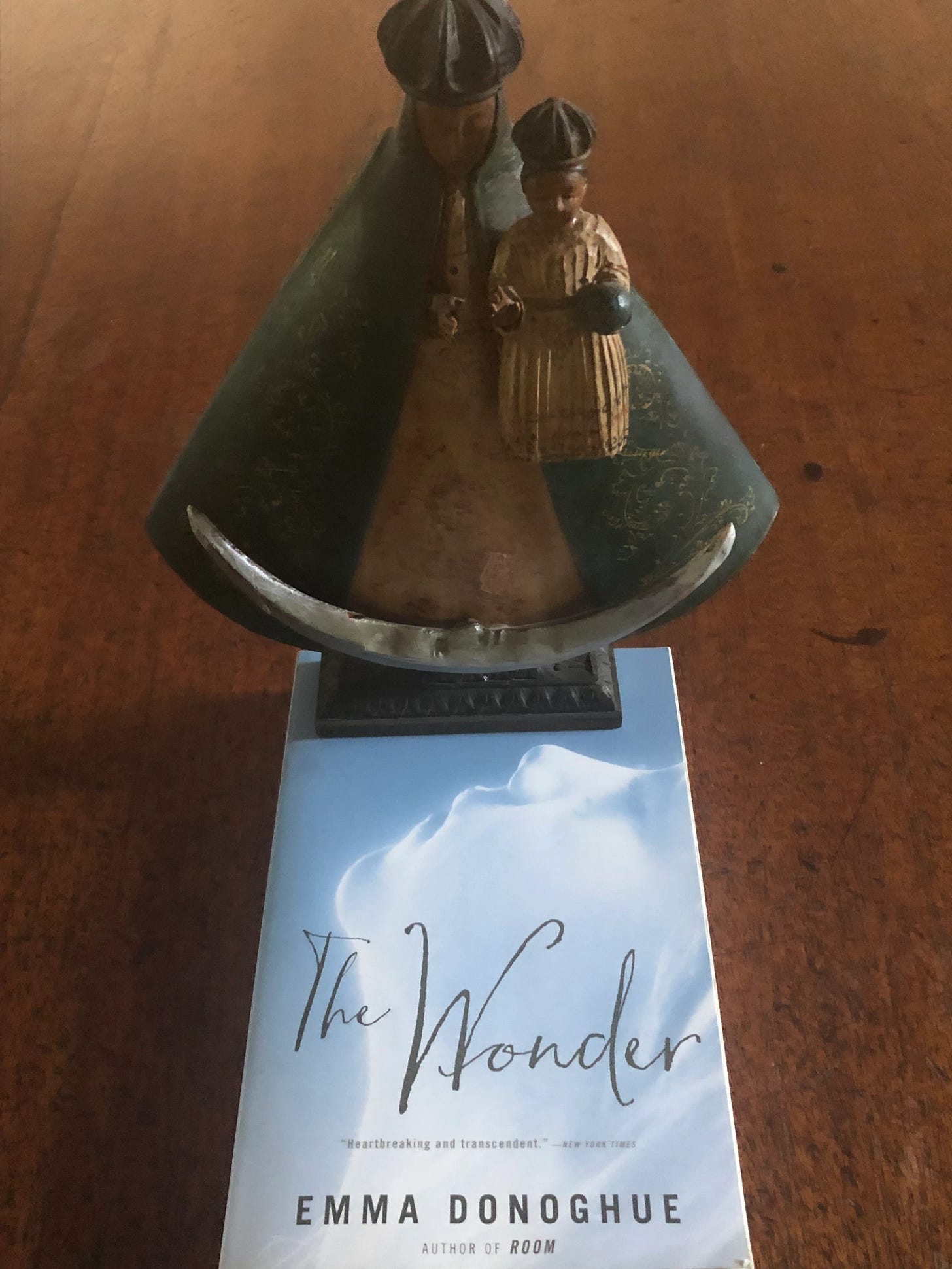Book Review for THE WONDER: Irish Pathos & Light
My wife was discussing our upcoming trip to Ireland with a very literate and intense Irish-American friend of ours who has often served as our Irish travel agent. At the end of the conversation, she insisted my wife read Emma Donoghue’s new novel, The Wonder. Given our friend’s bias toward all things Irish, I ignored the recommendation until I watched my wife get up early one morning without a cup of coffee in order to finish it. Soon the book was at the top of her hotly contested conversation list. She insisted I read it.
I finished it in a week – while reading other material. Its generously spaced pages combined with its New Age like cover suggest an easy read and, to some extent, it is. But its lack of detail, description and exposition is much more about our flawed narrator than the writing. It is all of a piece by the end. The beginning is engaging, sparse and suggestive. The midsection is filled with gradual reveals that build the many points of tension while flirting with a bit of redundancy. The final 100 pages fly as the plot twists ignite the book’s many thematic questions. It can be read on a long plane flight or in a few days. Don’t be fooled … its story won’t be very far from your mind for a long time.
This is a well-written, easy to read novel that delivers on many fronts. While not a classic in the making, it is much more than a beach read. It is tailor made for a good book club as the story opens a Pandora’s Box of metaphysical questions about faith, the existence of God and the nature of love. Its 291 pages are packed with big and eternal questions made accessible. It will do so within the historical context of Ireland’s terrible famine and her impoverished (in every sense) existence under the heel of the British. However, it is not in the least a piece of historical fiction. Emma Donoghue has written a book that is similar to her previous novel, The Room. Both involve complicated narrators and children. Both address the best and the worst in us as human beings. The Wonder is a journey of the soul through an Irish landscape that could have sprung from the imagination of Virgil.
The time is several years after the mid 19th century Irish famine and its horrific legacy permeates the story. The narrator is an English nurse trained by Florence Nightingale whose awareness grows with ours. We embrace her as reluctantly as she embraces the reality that surrounds her. The landscape is the center of Ireland – a world of bogs and rain. You are in the middle of nowhere. The story refuses the comfort of location. There is an utter lack of color. It is a world where a GPS would be useless unless it is attached to your soul. Like all good novels, it contains within it the multitudes of the human heart. It left me thinking about the power of parents, the vulnerability of children and the attraction of blindness as an antidote for doubt. The overarching question of human motivations, the real heart of the story, remains as blurry and opaque as the boggy world where it all takes place.
I had issues. The cover does not do it justice. I have a hard time reading a book with a cover that makes me uncomfortable. The typeface and the spacing signal a breezy read. The whole physical aspect of the book is at odds with the seriousness of Emma Donoghue’s efforts. In the same vein, the Epilogue felt unnecessary. Maybe Emma fought for it. Feels more like an editor’s effort to ensure its popularity.
The Wonder by Emma Donoghue
291 pages (2017)


